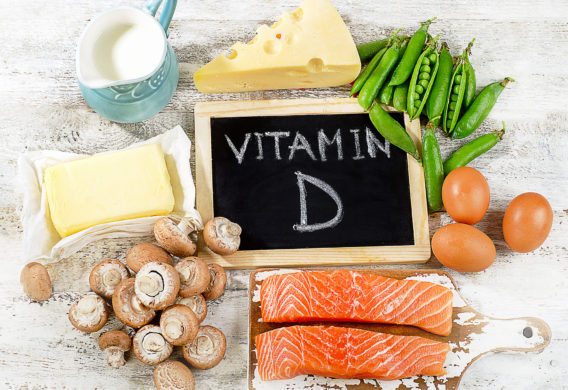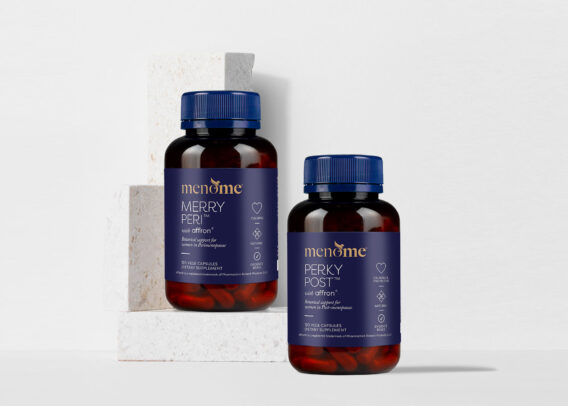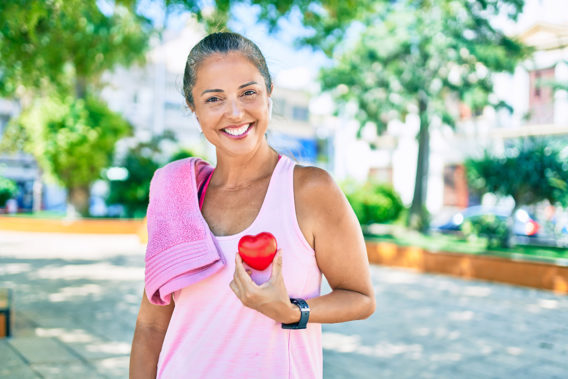
What Is Vitamin D3 & Why Is It Called The Sunshine Vitamin?
Say hello to the sunshine vitamin! Vitamin D3 is often called the sunshine vitamin which feels so good, doesn’t it? And that’s because our best source of D3 is via

Say hello to the sunshine vitamin! Vitamin D3 is often called the sunshine vitamin which feels so good, doesn’t it? And that’s because our best source of D3 is via

Please take a bow, Merry Peri® and Perky Post®. It’s so good to see you! To explain, we went on an information-gathering journey to find some wonderful, natural ingredients for menopause

Enzogenol® is one of the ingredients we use in MenoMe® 55+ because it’s a wellness powerhouse. The evidence is in! From blood pressure to blood circulation science shows Enzogenol® is

One of the ingredients we use in 55+ is called Enzogenol®. And there are very good reasons we’ve chosen to include it. Firstly, we always look for effective, natural solutions

Magnesium. Also known as the ‘mighty mineral’, magnesium is vital to wellbeing which is why we’ve included it in 55+. In this story we’ve given you the lowdown on the

The headlines have been abuzz with the possibility that vitamin D could lessen the risks of COVID-19. Much of the information has pointed out that the pandemic began in the

Enzogenol® is one of the main ingredients in 55+ and it’s an exciting supplement for our brains and hearts. The more research it undergoes, the more benefits its shown to

Who is MenoMe? We’re a small business based in New Zealand run by women for the women of Australasia. Team MenoMe® There are three of us working with you and
At MenoMe®, Menopause is our one & only game®. We live and breathe it – ’cause we’re going through it too or we’ve gone through it, and we totally get it! We’ve got your back and we promise to add a sprinkle of laughter to this rollercoaster ride!
Meno-Me Ltd
Unit 3/10 Makowhai Road,
R.D. 12, Hawera,
New Zealand.
Free call: 0508 MenoMe
Email: info@meno-me.com
Contact us here…
MenoMe®, LotsaLocks®, Merry Peri®, Perky Post®, Happy Go Tummy®, Women on Fire® , Mini Pause® and Menopause is our one & only game® are registered trademarks owned by Meno-Me Limited.
affron® is a registered trademark of Pharmactive Biotech Product, S.L.U.
keraGEN-IV® is a registered trademark of Keraplast Manufacturing.
Livaux® is a registered trademark of Anagenix IP Limited.
This is the time when menstruation is well and truly over, the ovaries have stopped producing high levels of sex hormones and for many ladies, perimenopause symptoms subside.
Estrogen has protective qualities and the diminished levels mean organs such as your brain, heart and bones become more vulnerable. It’s also a key lubricant so your lips may become drier, your joints less supple and your vagina might be drier. In addition, your thyroid, digestion, insulin, cortisol and weight may alter.
At this juncture, a woman might experience an increase in the signs of reduced estrogen but she should have a decrease of perimenopause symptoms. That said, some women will experience symptoms like hot flushes for years or even the rest of their lives.
Peri = ‘near’
Most females begin to experience the symptoms of perimenopause in their mid-forties. Your progesterone levels decline from your mid-30s but it’s generally from around 40 that the rest of your sex hormones begin to follow suit.
Perimenopause is a different experience for every woman and some women may barely notice it. The first indicators are usually changes to the monthly cycle. This means that for some ladies, this can be accompanied by things like sore breasts, mood swings, weight gain around the belly, and fatigue as time goes on.
For those with symptoms it can be a challenging time physically, mentally and emotionally.
Importantly, perimenopause lasts – on average – four to 10 years. The transition is usually a gradual process and many women enter perimenopause without realising.